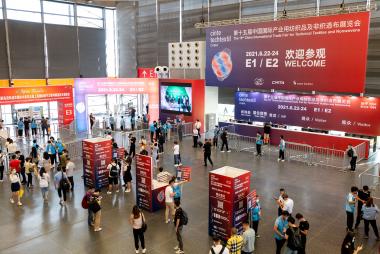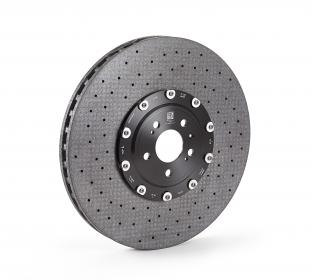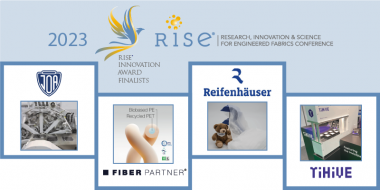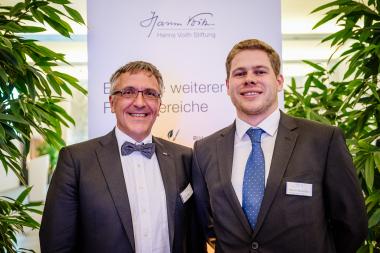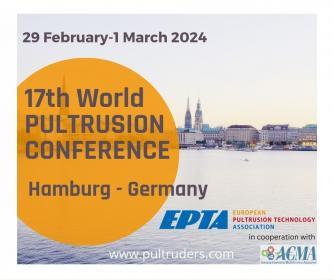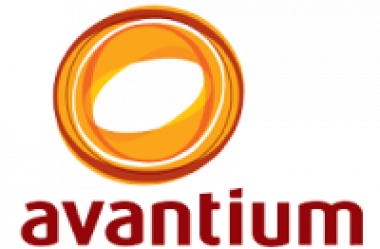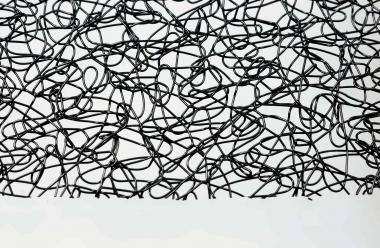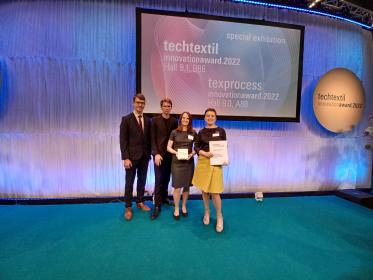Cinte Techtextil China 2023 with different zones
Technological progress often results from close collaboration, and industries that rely on continual improvement stand to benefit from the return to in-person business. Cinte Techtextil China’s first edition since eased pandemic measures is set to reflect a 27.9% increase in exhibitor numbers, with a rejuvenated international contingent further supplemented by the return of the European Zone. Taking place from 19 – 21 September across 40,000 sqm at the Shanghai New International Expo Centre, the platform is expected to welcome buyers from across Asia, Europe, and beyond. Pre-registrations have doubled compared to the previous edition, and international buyers account for over 20% of the total.
The new zone, Marine Textile Zone, will be comprised of multiple Chinese green marine and nautical rope netting exhibitors, while also hosting the Technology Exchange Forum, and the awards ceremony of the Top 10 Suppliers in the China Rope Net Industry. Prominent exhibitors in this zone include Ropenet Group, Hunan Xinhai, and Zhejiang Four Brothers Rope.
Other domestic exhibitors, such as Shanghai Shenda Kebao New Materials, SIJIA New Material (Shanghai), Zhejiang Hailide New Material, and Zhejiang Jinda New Materials, will showcase products for applications in outdoor advertising, tents, boats, vehicles, environmental engineering, and much more.
Supplementing the fairground’s wide variety of domestic suppliers will be a much-increased showing of international exhibitors, with many to be found within hall E1’s European Zone. Several global industry leaders are featured in their categories below:
Nonwovens equipment
- Autefa Solutions, Germany: solutions provider for nonwovens lines and machines for carded-crosslapped needlepunching lines, spunlace lines and thermobonding lines.
- Dilo, Germany: in addition to offering general services, Dilo supplies opening and blending equipment, carding and airlay machines, and crosslapping and needling machines.
- Groz-Beckert, Germany: provider of industrial machine needles, precision parts and fine tools, as well as systems and services for the production and joining of textile fabrics.
- Reifenhäuser Reicofil, Germany: provider of innovative technologies and components for plastics extrusion, producing blown films, cast films, sheets as well as nonwovens.
Weaving equipment
- Itema, Italy: provider of advanced weaving machines, spare parts, and integrated services, specifically for rapier, air jet and projectile weft insertion technologies.
- Lindauer DORNIER, Germany: the company manufactures weaving machines, film stretching lines, and composite systems, also offering technical support and spare parts supply.
- Picanol, Belgium: producer and servicer of high-tech air jet and rapier weaving machines, with around 2,600 weaving mills utilising their systems worldwide.
Coating and lamination
- BRÜCKNER Textile Technologies, Germany: manufacturer of machines and lines for the coating and finishing of apparel fabric, technical textiles, nonwovens, glass fabrics and floor coverings.
- ROWA Lack, Germany: developer of high-quality materials and product solutions for the polymer industry, with applications including automotive, electrical engineering, construction, technical textiles, and medical technology.
- Stahl, the Netherlands: the Dutch company provides high quality coatings, dyes and process chemicals for leather, flexible coated substrates, textiles, films and foils, paper, and related products.
Fibre
- Monosuisse, Switzerland: with production sites in Switzerland, Poland, Romania, Mexico, and Germany, Monosuisse manufactures various precise, high-quality polymer monofilaments from 19µm to 3.00 mm in diameter.
- Perlon, Germany: specialised in the manufacture of synthetic filaments in diverse application areas, including paper machine clothing, dental care, and advanced technical textiles for agriculture, 3D printing, sports and leisure, home, and more.
Meanwhile, first-time exhibitors include Rökona (Germany), showcasing RE:SPACE, their range of recycled technical textiles; Testex AG (Switzerland), the official OEKO-TEX® representative in multiple countries including China; Hohenstein (Germany), the renowned testing laboratory and research institute; and zwissTEX (Germany), the knitted fabrics and lamination specialists. In addition, the returning Taiwan Pavilion is set to feature the debut of Shinih Enterprise Co Ltd (Taiwan China).
Beyond the innovation displayed at the booths, the fair’s programme is set to welcome global experts from various technical textile and nonwoven sub-sectors to offer specific insights and unveil innovations. Highlighted events include:
The 11th China International Nonwovens Conference
14 sessions cover topics such as the quality control of medical supplies; green development in technology and applications in the nonwovens industry; and the development and application of flashspun nonwovens in China.
Marine textiles and rope netting events
Events specific to this zone include the Top 10 Suppliers in the China Rope Net Industry; Conference on Textile Applications for Marine Engineering and Fisheries; and the China Nonwovens & Industrial Textiles Association (CNITA) Rope Net Branch Council Meeting
"Nonwovens, Creating a Better Life” Innovation Showcase
Product display area showcasing around 100 nonwovens products with applications in five areas: medical and health, quality of life, human habitat, sustainable development, and innovative design.
Advanced Technical Textiles Industry Chain Synergistic Innovation Development Forum
Includes presentations from multiple key players in the technical textile industry, including Mr Steven Liu, Commercial Manager of Polymer Additives Business of Sanitized (China) Ltd.
Messe Frankfurt (HK) Ltd


